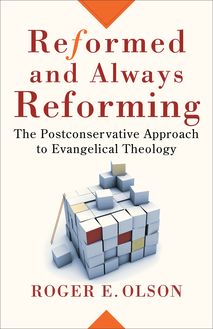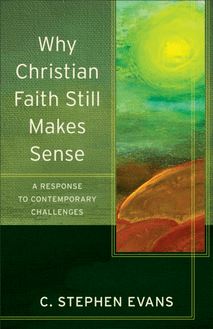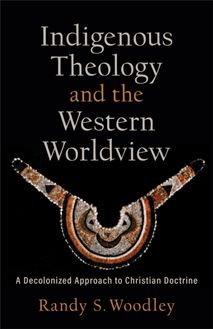Who Is God? (Acadia Studies in Bible and Theology) , livre ebook
53
pages
English
Ebooks
2020
Vous pourrez modifier la taille du texte de cet ouvrage
Obtenez un accès à la bibliothèque pour le consulter en ligne En savoir plus
Découvre YouScribe et accède à tout notre catalogue !
Découvre YouScribe et accède à tout notre catalogue !
53
pages
English
Ebooks
2020
Vous pourrez modifier la taille du texte de cet ouvrage
Obtenez un accès à la bibliothèque pour le consulter en ligne En savoir plus
Publié par
Date de parution
21 juillet 2020
Nombre de lectures
2
EAN13
9781493423835
Langue
English
Poids de l'ouvrage
5 Mo
Publié par
Date de parution
21 juillet 2020
EAN13
9781493423835
Langue
English
Poids de l'ouvrage
5 Mo
Cover
Half Title Page
Series Page
Acadia Studies in Bible and Theology
H. Daniel Zacharias, General Editor
The last several decades have witnessed dramatic developments in biblical and theological study. Full-time academics can scarcely keep up with fresh discoveries, ongoing archaeological work, new exegetical proposals, experiments in methods and hermeneutics, the rise of majority world theology, and innovative theological proposals and syntheses. For students and nonspecialists, these developments can be confusing and daunting. What has been needed is a series of succinct studies that assess these issues and present their findings in a way that students, pastors, laity, and nonspecialists will find accessible and rewarding. Acadia Studies in Bible and Theology, sponsored by Acadia Divinity College in Wolfville, Nova Scotia, and in conjunction with the college’s Hayward Lectureship, constitutes such a series.
The Hayward Lectureship has brought to Acadia many distinguished scholars of Bible and theology, such as Sir Robin Barbour, James D. G. Dunn, C. Stephen Evans, Edith Humphrey, Leander Keck, Helmut Koester, Richard Longenecker, Martin Marty, Jaroslav Pelikan, John Webster, Randy Woodley, and N. T. Wright. Initiated by Lee M. McDonald and Craig A. Evans, the Acadia Studies in Bible and Theology series continues to reflect this rich heritage and foundation.
These studies are designed to guide readers through the ever more complicated maze of critical, interpretative, and theological discussion taking place today. But these studies are not introductory in nature; nor are they mere surveys. Authored by leading authorities in the field, the Acadia Studies in Bible and Theology series offers critical assessments of major issues that the church faces in the twenty-first century. Readers will gain the requisite orientation and fresh understanding of the important issues that will enable them to take part meaningfully in discussion and debate.
Title Page
Copyright Page
© 2020 by Richard Bauckham
Published by Baker Academic
a division of Baker Publishing Group
PO Box 6287, Grand Rapids, MI 49516-6287
www.bakeracademic.com
Ebook edition created 2020
Ebook corrections 11.11.2020
All rights reserved. No part of this publication may be reproduced, stored in a retrieval system, or transmitted in any form or by any means—for example, electronic, photocopy, recording—without the prior written permission of the publisher. The only exception is brief quotations in printed reviews.
Library of Congress Cataloging-in-Publication Data is on file at the Library of Congress, Washington, DC.
ISBN 978-1-4934-2383-5
Unless otherwise noted, Scripture quotations are from the New Revised Standard Version of the Bible, copyright © 1989 National Council of the Churches of Christ in the United States of America. Used by permission. All rights reserved.
Scripture quotations labeled NIV are from the Holy Bible, New International Version®. NIV®. Copyright © 1973, 1978, 1984, 2011 by Biblica, Inc.™ Used by permission of Zondervan. All rights reserved worldwide. www.zondervan.com. The “NIV” and “New International Version” are trademarks registered in the United States Patent and Trademark Office by Biblica, Inc.™
Scripture quotations labeled REB are from the Revised English Bible, copyright © Cambridge University Press and Oxford University Press 1989. All rights reserved.
Contents
Cover i
Half Title Page ii
Series Page iii
Title Page iv
Copyright Page v
Preface vii
Introduction 1
1. The Revelation of the Divine Presence 5
2. The Revelation of the Divine Name 35
3. The Revelation of the Divine Character 61
4. The Revelation of the Trinity 89
Scripture and Ancient Writings Index 115
Cover Flaps 121
Back Cover 122
Preface
The origins of this book lie in three lectures that I gave twice, first as the Frumentius Lectures for 2015 at the Ethiopian Graduate School of Theology in Addis Ababa and second as the Hayward Lectures for 2018 at Acadia Divinity College in Nova Scotia, Canada. The lectures formed the basis for chapters 2, 3, and 4 of this book, for which purpose they were revised and somewhat expanded. Chapter 1 has been written de novo for this book.
I am grateful to those who invited me to give the two lecture series, as well as to those who in both places made me very welcome, formed enthusiastic audiences, and asked thoughtful and probing questions.
Because the book originated as lectures, I have not provided footnotes with references to the secondary literature. The footnotes are limited to biblical references and brief explanatory notes. But at the end of each chapter I have provided bibliographic notes, indicating some of the more important and helpful published work on the subjects of that chapter. Of course, because the chapters range widely over biblical passages and themes, I could have extended the bibliography indefinitely. I decided not to list commentaries because there are so many good commentaries and readers can more easily find them for themselves.
Introduction
In our ever more secular age many people pose the question “Does God exist?” or “Is there a God?” But to consider this question seriously we must also ask the question “Who is God?” The content that people give to the word “god” has varied and still varies enormously, and so one has to ask, “What kind of God are you actually talking about?” “What God?” or “Who is God?” In biblical times this was the obvious question. Very few people thought there was nothing to which one could apply the term “god” or “the gods” or “the divine.” But which god was truly God? Who is the God you are talking about? This was the key question and I think still is.
Even though all notions of the divine have something in common, and some more than others, Christians give priority to those key events and experiences that the Bible relates and expounds as the revelation of God. We can answer the question “Who is God?” only by attending to who God has revealed himself to be. To this the whole biblical revelation is relevant. Asked what the whole Bible is about, I would say it is most centrally about the identity of God, while at the same time it tells the story of God and his creation, that all-encompassing story that extends from creation in the beginning to new creation at the end. Intensively the Bible is about the identity of God; extensively it tells the story of God and the world.
Within that all-encompassing story, there are key moments of revelation that could be said to define who God is for us—or, it would be better to say, moments in which God defines who God is for us. These are not merely moments that are narrated once within the biblical story; they are more like reference points to which the rest of Scripture constantly refers back. They are moments that reverberate through the whole story. Moreover, like all events of great significance, their significance is not grasped all at once and forever. They are moments whose meaning is never exhausted. So we should read them as events pregnant with meaning, pointing us finite creatures of God to God’s inexhaustible and mysterious identity. They should challenge our own understanding of God and our own relationship with God, for, as J. B. Phillips famously said, “Your God is too small.” 1
The key moments of divine disclosure we shall reflect on in this book are by no means the only such moments in the Bible. Others could have been chosen. But those we consider here are undoubtedly among the most significant. They are Jacob’s dream at Bethel (Gen. 28:10–22), the revelation to Moses at the burning bush (Exod. 3), the revelation to Moses on Mount Sinai (Exod. 33:17–34:8), and the three key moments of revelation in the Gospel of Mark (1:9–11; 9:2–8; 15:37–39). In all these cases our exploration of biblical theology will range more widely than these moments of disclosure themselves, but they will be our guiding stars by which to travel through related territory.
My approach in this book is to treat the Bible as a canonical whole. Here I do not engage in historical reconstruction behind and around the texts, though that is a task that greatly interests me and that I pursue elsewhere. Here I am interested in the texts as we have them and as belonging to the canon of Scripture—a collection of sacred writings that witness to God through the divine disclosures they contain.
I hope to show readers that the Bible’s account of the identity of God is consistent both within and across the two testaments. I have no wish to discount the diversity of the various parts of Scripture, but I think that a theological interpretation of Scripture should seek the unity in the diversity. The approach is necessarily broad brush, but detailed exegesis is at its heart. The exegesis aims to do justice to particular passages in their own literary contexts, while at the same time highlighting those themes that play an important role in the canon as a whole.
This is a small book on a vast and vastly important topic. Nevertheless, I dare to hope that, by God’s grace, it may help some readers to know God better.
1 . J. B. Phillips, Your God Is Too Small: A Guide for Believers and Skeptics Alike (New York: Touchstone, 2004). This book was first published in 1952.
1 The Revelation of the Divine Presence
The first key moment of revelation that we shall consider is the dream of the patriarch Jacob, ancestor of the people of Israel, at Bethel:
10 Jacob left Beer-sheba and went toward Haran. 11 He came to a certain place and stayed there for the night, because the sun had set. Taking one of the stones of the place, he put it under his head and lay down in that place. 12 And he dreamed that there was a ladder set up on the earth, the top of it reaching to heaven; and the angels of God were ascending and descending on it. 13 And the L ORD stood beside him and said, “I am the L ORD , the God of Abraham your father and the God







